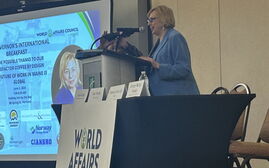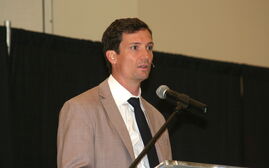Processing Your Payment
Please do not leave this page until complete. This can take a few moments.
- News
-
Editions
-
- Lists
-
Viewpoints
-
Our Events
-
Event Info
- Women's Leadership Forum 2025
- On the Road with Mainebiz in Bethel
- Health Care Forum 2025
- On The Road with Mainebiz in Greenville
- On The Road with Mainebiz in Waterville
- Small Business Forum 2025
- Outstanding Women in Business Reception 2025
- On The Road with Mainebiz in Bath
- 60 Ideas in 60 Minutes Portland 2025
- 40 Under 40 Awards Reception 2025
- On The Road with Mainebiz in Lewiston / Auburn
- 60 Ideas in 60 Minutes Bangor 2025
Award Honorees
- 2025 Business Leaders of the Year
- 2024 Women to Watch Honorees
- 2024 Business Leaders of the Year
- 2023 NextUp: 40 Under 40 Honorees
- 2023 Women to Watch Honorees
- 2023 Business Leaders of the Year
- 2022 NextUp: 40 Under 40 Honorees
- 2022 Women to Watch Honorees
- 2022 Business Leaders of the Year
-
-
Calendar
-
Biz Marketplace
- News
- Editions
- Lists
- Viewpoints
-
Our Events
Event Info
- View all Events
- Women's Leadership Forum 2025
- On the Road with Mainebiz in Bethel
- Health Care Forum 2025
- On The Road with Mainebiz in Greenville
- On The Road with Mainebiz in Waterville
- + More
Award Honorees
- 2025 Business Leaders of the Year
- 2024 Women to Watch Honorees
- 2024 Business Leaders of the Year
- 2023 NextUp: 40 Under 40 Honorees
- 2023 Women to Watch Honorees
- 2023 Business Leaders of the Year
- + More
- 2022 NextUp: 40 Under 40 Honorees
- 2022 Women to Watch Honorees
- 2022 Business Leaders of the Year
- Nomination Forms
- Calendar
- Biz Marketplace
With trade tensions, what's next for Maine's global trade?
Last year was fraught with challenges for any company involved in international trade.
Tariffs and political instability around the world were just two of the obstacles. Hussey Seating Co., which grappled with the tariff on aluminum, and Maine Coast, whose trade in lobster to China was derailed by retaliatory tariffs, are just two of the Maine companies affected.
Despite the rocky year and “unprecedented trade tensions,” as Maine International Trade Center President Wade Merritt said in the cover letter of the organization's annual report, Maine exports grew by 6% last year, to $2.8 billion. Much of that was dominated by two areas: forest products (including paper, pulp, logs and lumber) and semiconductors, most of which are produced in South Portland at ON Semiconductor or Texas Instruments. The semiconductors are shipped to Asia and then are assembled in cell phones and other consumer gadgets.
Some 2,087 companies exported goods and services to 169 countries, MITC reported.
This spring, the trade center's annual Trade Day 2019 Trade Day, to be held May 24 at the Holiday Inn by the Bay, will focus on the global “bioeconomy.”
The focus will be on new and innovative uses of forest-and-ocean products, with speakers from northern Europe talking about initiatives they've taken in the same industries.
Dana Eidsness, the trade center's director of the Maine-North Atlantic development, spoke to Mainebiz after arriving from Norway, where she participated in a trade conference.
“There's a bio-materials revolution happening” around the world, says Eidsness.
She cites the example of Finland, which went through a similar upheaval in its paper industry. Responding to market demand over years, it shifted from production of paper to packaging products and tissue.
“Now [companies] are asking, 'What else can we make from this stuff?'” she says.
Along with ocean products, the raw materials from Maine are used for and could increasingly be used the making of cosmetics, cross-laminated-timber, food additives, biofuels, biochemicals and the like. Maine already has a range of research centers to develop products.
“Maine is in a really good position to lead on this,” says Eidsness.
NYC accounting firm expands Maine footprint
Dawson, Smith, Purvis & Bassett, a full-service accounting firm in Portland, has merged with Marcum LLP.
Terms of the deal, which closed Jan. 1, were not disclosed.
Dawson, Smith has seven partners and 20 professionals, all of whom will remain. The firm, which is at 15 Casco St., was founded in 1990. Kirk Purvis will be the office's managing partner.
Dawson, Smith offers a range of accounting services: tax and financial planning for closely held businesses and high net worth individuals, litigation support, business valuation, stockholder buy-ins and buy-outs, mergers and acquisitions, incentive compensation services, pension audits and employment contract services.
It will be Marcum's second Portland office. The other is at 100 Commercial St. It is led by Nancy Fannon, who specializes in business valuation and litigation services. Both offices will operate under the Marcum name.
Marcum, which is based in New York City, has New England offices in Boston, Connecticut and Providence, R.I.













Comments